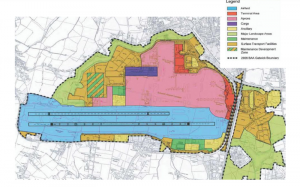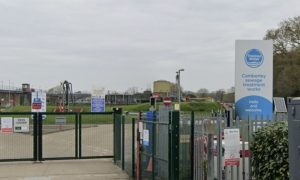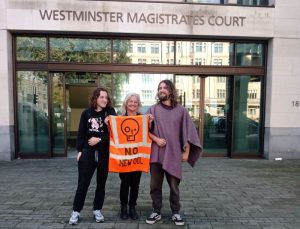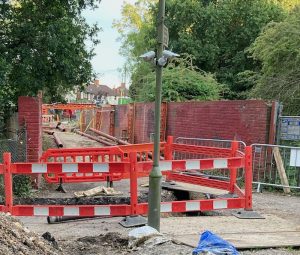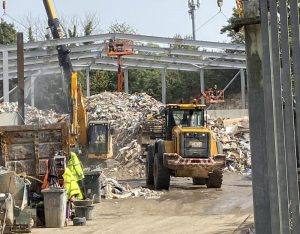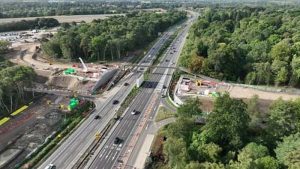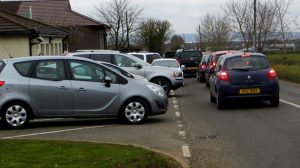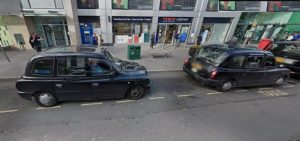Surrey County Council could call on central government to intervene in “discriminatory” plans to scrap day travelcards in to London.
The travelcards mean Surrey residents can travel in to the capital on a single ticket for use on Transport for London (TfL) services including the underground, bus, tram, Docklands Light Railway and London Overground. However their future is in doubt.
If day travelcards are withdrawn, it will mean Surrey residents would need to buy separate tickets for rail travel and TfL journeys. TfL has given notice that it will withdraw from the funding agreement for travel cards, with a mayoral decision on the matter showing the arrangements meant TfL was “effectively under-funded” at a cost of around £40m a year.
A Surrey County Council meeting on Tuesday (October 10) will debate a motion from the councillor responsible for transport, infrastructure and growth calling for London’s mayor to withdraw the proposals.
Councillor Matt Furniss (Conservative, Shalford) called the proposal “discriminatory” and will ask the council’s leader to write to Sadiq Khan outlining the impact on Surrey residents, the negative impact on the economy of London and “the need to abandon plans to remove day travelcards”.
His motion will also ask the council’s leader, Cllr Tim Oliver (Conservative, Weybridge) to write to the Secretary of State for Transport “urging him to intervene in this matter”.
A TfL spokesperson said central government demands for the organisation to save money and “generate significant amounts of additional revenue” had led to proposals to stop accepting day travelcards on the TfL network.
They said the Mayor had “reluctantly” instructed TfL to give six month’s notice to withdraw from the travelcard agreement, but that the decision was reversible.
The spokesperson said: “This is the first stage in a process and there are no changes to tickets at this time. This is an operational decision that has been taken now to ensure that TfL meets the requirements of its funding agreement, but TfL continues to look for alternative options.”
A Mayoral decision on the plans said an assessment had found that customers travelling from outside London may see prices go up if day travelcards were withdrawn.
It said: “This is because the current travelcard agreement pays an amount to TfL for these tickets that is well below the price of the same tickets sold within London; TfL is effectively under-funded by the travelcard agreement at a total cost of approximately £40m a year.
“As a result, this proposal is estimated to generate approximately £40m per year for TfL, which will form part of the additional revenue mandated by government for TfL to achieve.”
In his motion, Cllr Furniss said: “The proposals to remove day travelcards constitute an unfair, unacceptable and expensive levy on our residents who wish or need to travel to London. The proposals have deliberately targeted the removal of the day travelcard as a method to generate additional income for TfL. It is anticipated by the Mayor’s own consultation that the withdrawal of day travelcards will result in rail operators ceasing to sell Zone 1-6 travelcards.”
Opposition councillors will call for TfL, along with the Department for Transport (DfT) and train operators, to come together to find a solution, and for zone 6 to be expanded to include some Surrey stations.
Cllr Catherine Powell (Farnham Residents, Farnham North), leader of the Surrey residents’ association and independent group on the county council, said key stakeholders needed to work together to find alternative funding in order to keep day travelcards.
She told the LDRS: “We need to encourage the use of public transport as part of moving towards net zero, to remove day travelcards would be a retrospective step.”
The TfL spokesperson said: “While this six-month notice-period is now underway, this decision remains reversible and does not therefore mean that day travelcards will be withdrawn. TfL is keen to work collaboratively with the DfT and Rail Delivery Group to discuss options that would allow day travelcards to continue to be provided, while ensuring TfL can meet the requirements of the funding settlement with government.” They said active discussions were ongoing.
The Labour group leader on the county council, Cllr Robert Evans (Stanwell and Stanwell Moor), said TfL was “not being funded properly” and couldn’t do everything it wanted to do.
Also calling for more Surrey stations to be included in zone 6, Cllr Evans added: “You can argue why is transport for London giving subsidies to Surrey? Why would expect them to do so?”
Councillors for the Green Party and Labour will put forward a suggested amendment to the motion, removing the call for the transport secretary to intervene.
Cllr Jonathan Essex (Redhill East), the Green group leader, said: “We want this situation to actually be resolved by bringing together in an open and transparent way the people who need to resolve it.
“I hope that by putting the amendment to the motion down, we will try to shift this from a political argument into an acceptance that people need to get round the table and actually resolve this.”
The motion will instead call for the leader to write to Sadiq Khan and the transport secretary to request a joint meeting with TfL, DfT and train operating companies.
This meeting would “discuss the impact of the current travelcard proposals in Surrey and other areas neighbouring London” and the need to “agree a fair funding settlement to resolve this matter”.
The amendment will request that the negotiations also look to extend zone 6 to areas of Surrey bordering London “to increase Surrey residents’ direct access to contactless TfL fares and so cheaper train travel”.
The meeting will be held at the council’s Reigate headquarters at 10am on Tuesday, October 10.
Image – Epsom Downs station. TheFrog001 CCO 1.0



